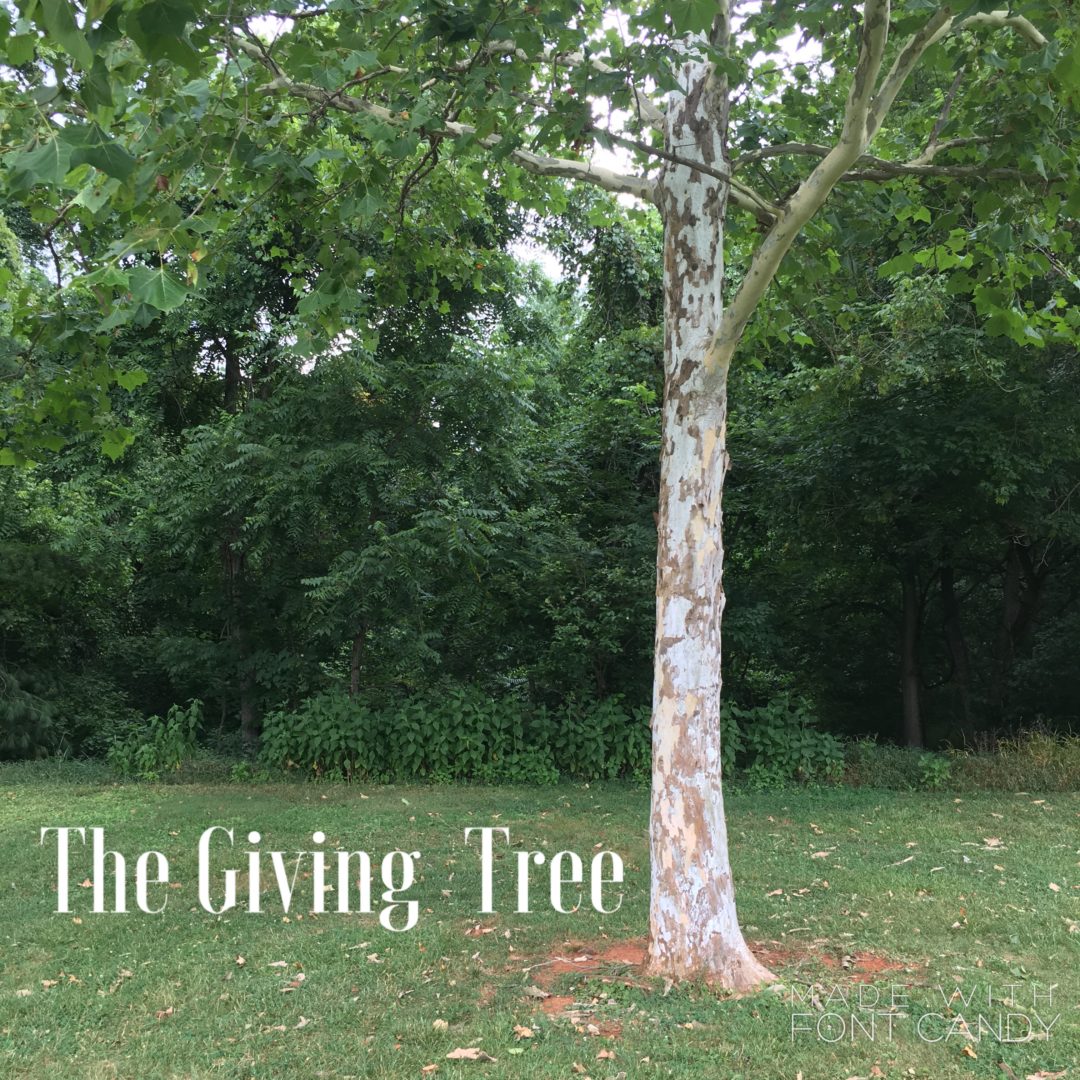
The following beautiful post is by my friend Kathryn Casey. Kathryn is a certified life coach, freelance writer wife, and mother. She writes on psychology, community, consumerism, femininity and family. Her youngest child has a rare genetic SPINT2 mutation, which, due to frequent hospitalizations, makes two places home, her family home in small town Hughson, California and Benioff Children’s Hospital in San Francisco. This post was previously published at domesticphilosophy
What is the Giving Tree?
The Giving Tree is the mother. She gives with joy when the boy takes with joy. She rejoices in his joy. As he ages, her gifts mature. They are more substantial. Yet his receipt of the gift requires him to leave. To fully use the gift, he must leave her.
He returns when his well is dry, when his ideas have failed.
His need is deeper.
His longing is greater.
And so she gives.
She gives until she is fundamentally altered. Her body is no longer recognizable as the tree she once was. She has substantially changed. What seemed to make her what she was when she was young, when the boy was young, is gone.
All that is left are the profound remnants of a life fully given. She is sad when she is alone.
Is she so old, so different than the things that make trees beautiful, that she has nothing left to give?
No, in her suffering, in her altered state, the boy returns again. He needs very little. In the end, his depth of need comes face to face with the love of an infant. He needs just her. It is not something he can take from her. It is not something that can be taken from her. He needs her. And she is glad to be with him, glad to have a gift.
We give and we give as mothers. We give with joy and with our bodies in those early years. Yet we are still recognizable. Perhaps there is a certain charm we have now as mothers that we did not have before. People smile in passing to see those names carved on our hearts and our bodies, held from danger in our hands. But the day comes when people no longer smile.
Maybe they see a wasted life or a useless life or worse, perhaps they do not see us at all. A 60-year old woman rarely turns heads the way a 20-year old woman can. And so a society obsessed with youth writes her off.
But she gives and gives. She no longer just gives out of the usual way a tree or a mother can give. Now she must see the child she tried so hard to protect suffer and grieve and it hurts her all the more.
At some time there comes the time of loss. Maybe she was young, as I am, or old. But some loss occurs: the loss of a home, the loss of a child, the loss of a grandchild, the loss of a spouse, the loss of a marriage, and so on. Some loss happens. That suffering makes her forever different. She bears in her body the marks of the life she gave for her children. She will never be the same.
Children take and take. It is not folly but some thing written into human nature. In the end, though, there is nothing to take, just a nearness to experience, the rest of being in the presence of a mother. Whatever Mother gave, whether she gave well or often or with weakness, when she is present, her presence is so much more powerful than all the strangers in the world. And the presence of her child -the physical presence of her child- is more magnificent to her heart than all else. Whether the child is small or taller than she or dead, her body is complete when she is near that child.
I do not know what it is like to have grown children. I do not know what it is like to see them leave for college or start a new job or grieve a loss I hope they never would know. But I know what it is to lose. I know what it is to be separated. I now know a fear I can never “un-know.” And when I fear for my child, I fear in a new way. Then, I must let go in a new way.
This knowledge bears itself in my body and in my heart. I am fundamentally altered by the gift I have given, by the lives I have loved. I cannot know what the future holds, but I can say with the gift that I gave, that I am happy to have given it.
To read more from Kathryn Casey, visit her page at domesticphilosophy.wordpress.com